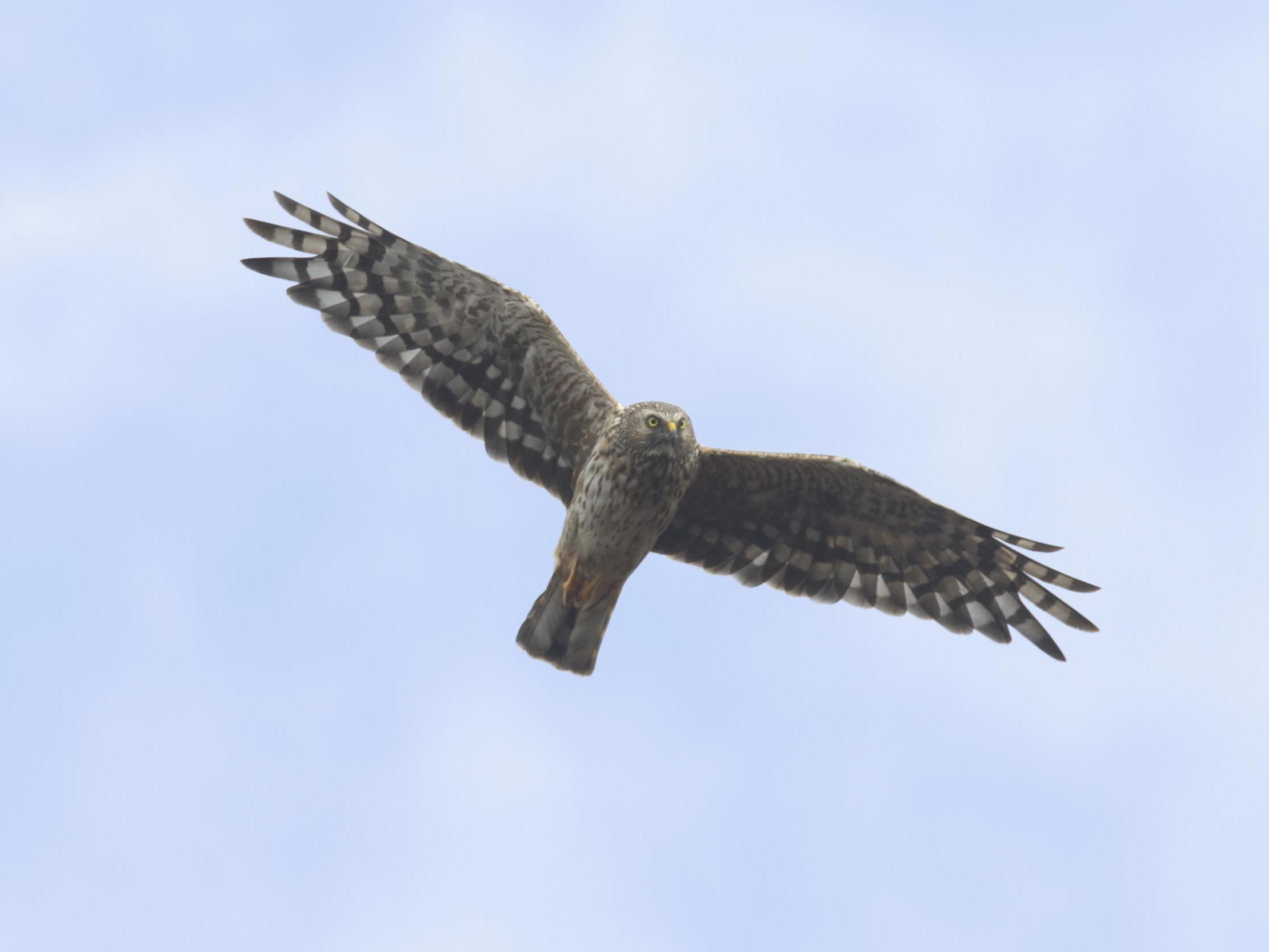Three critically endangered hen harriers disappear in ‘suspicious circumstances’, says RSPB
Birds of prey 'vanish without a trace' within months of hatching, raising suspicions of illegal killing

Your support helps us to tell the story
From reproductive rights to climate change to Big Tech, The Independent is on the ground when the story is developing. Whether it's investigating the financials of Elon Musk's pro-Trump PAC or producing our latest documentary, 'The A Word', which shines a light on the American women fighting for reproductive rights, we know how important it is to parse out the facts from the messaging.
At such a critical moment in US history, we need reporters on the ground. Your donation allows us to keep sending journalists to speak to both sides of the story.
The Independent is trusted by Americans across the entire political spectrum. And unlike many other quality news outlets, we choose not to lock Americans out of our reporting and analysis with paywalls. We believe quality journalism should be available to everyone, paid for by those who can afford it.
Your support makes all the difference.Three critically-endangered birds of prey have disappeared from the British countryside “in suspicious circumstances”, raising fears they have been illegally killed.
The young hen harriers all “vanished without a trace” months after hatching, said the RSPB, which had tagged the birds with satellite trackers as part of a conservation programme.
Police are investigating the birds’ presumed deaths in Northumberland, the Peak District and North Wales.
“While we don’t yet know what has happened to these three birds, we do know that the main factor reducing the hen harrier population in the UK is the illegal killing of birds associated with the intensive management of grouse moors,” said Cathleen Thomas, project manager of the RSPB’s Hen Harrier Life project.
She said tags attached to each raptor had “inexplicably stopped” working. The devices typically continue to send details of their location if a bird dies of natural causes.
Hen harriers are one of the UK’s rarest birds of prey, with only nine successful nests recorded in England this year despite sufficient habitat for 300 breeding pairs.
Illegal persecution linked to moorland grouse shooting is thought to be principally to blame for their low numbers.
Two of the three birds that recently vanished were last known to have been over land that was managed for driven grouse shooting.
A young female harrier known as Hilma was recorded at moorland near Wooler, Northumberland, on 8 August, before going missing.
Another female, Octovia, vanished in the Peak District weeks later. She had hatched alongside three other chicks from a nest in the National Trust’s High Peak Moors in June, the first time the species had bred in the area for four years.
The bird’s monitoring tag last transmitted on 26 August, four days after she moved to privately-owned grouse moors near Sheffield.
Patrick Begg, the National Trust’s outdoors and natural resources director, said it was “deeply upsetting to learn” of the harrier’s disappearance in “seemingly suspicious circumstances”.
“We’re implacably intolerant of persecution and the arrival of four healthy chicks on our High Peak estate this summer was widely and rightly celebrated,” he added. “We are aware the incident has been reported to police and will do everything we can to assist with their investigation.”
Northumbria Police said officers were “working with the RSPB to establish if any criminal offences have taken place”.
A third young harrier, Heulwen, disappeared late last month on moorland near to Ruabon mountain in Wrexham, North Wales.
Her satellite had been “transmitting regularly until it suddenly and inexplicably stopped” on 29 August, the RSPB said.
Rob Taylor, rural crime manager at North Wales Police, described the loss of the bird as “very concerning” and said the force was “keeping an open mind” about the circumstances.
The disappearance of the birds mars what had been one of the most successful breeding season for hen harriers in England for a decade.
Thirty-four chicks fledged across Lancashire, Cumbria, Northumberland and Derbyshire this year, prompting new optimism about a species brought to the brink of extinction in England.
Dr Thomas said: “Just a few weeks ago we were celebrating the breeding success of hen harriers in the UK, but already these young chicks are disappearing in suspicious circumstances when they are just a few months old.
“It’s devastating for those of us involved in watching and protecting these chicks and terrible news for a birds of prey species that has shown a 24 per cent decline in numbers between 2004 and 2016.”